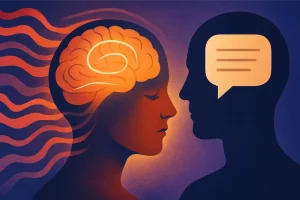Abstract
Purpose of review
Psychedelics are reawakening interest from psychiatry, cognitive neuroscience and the general public with impressive outcomes in small-scale clinical trials, intriguing human brain imaging work and high-impact journalism.
Recent findings
This brief opinion piece offers a perspective on how psychedelics work in the brain that may help contextualize these developments. It attempts to link various scales of action, from the molecular (serotonin 2A receptor agonism) through to the anatomical and functional (heightened plasticity) and up to the dynamic (increased brain entropy), systems level (network disintegration and desegregation) and experiential.
Summary
It is proposed that psychedelics initiate a cascade of neurobiological changes that manifest at multiple scales and ultimately culminate in the relaxation of high-level beliefs. The purpose of psychedelic therapy is to harness the opportunity afforded by this belief-relaxation to achieve a healthy revision of pathological beliefs.
Carhart-Harris, R. L. (2019). How do psychedelics work?. Current opinion in psychiatry, 32(1), 16-21., 10.1097/YCO.0000000000000467
Link to full text













